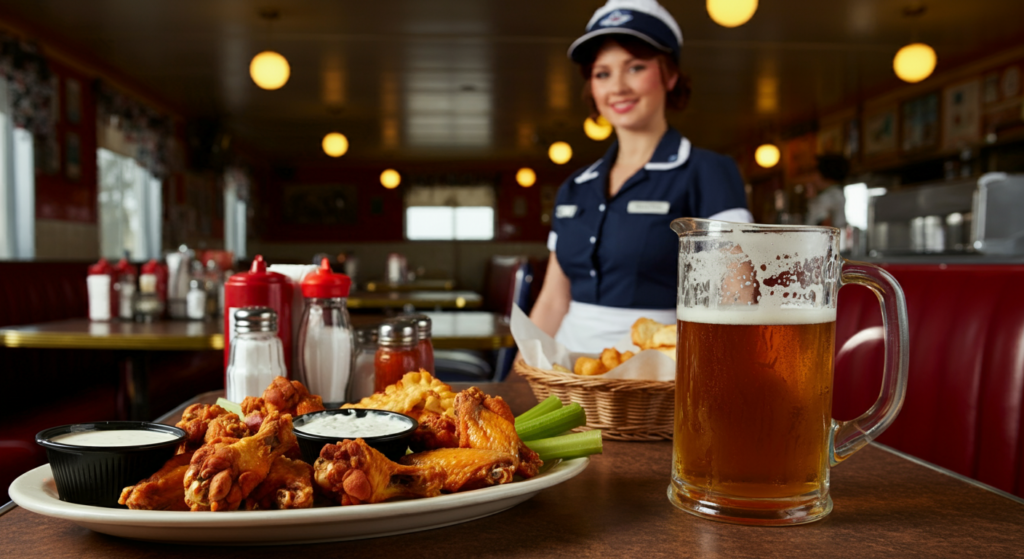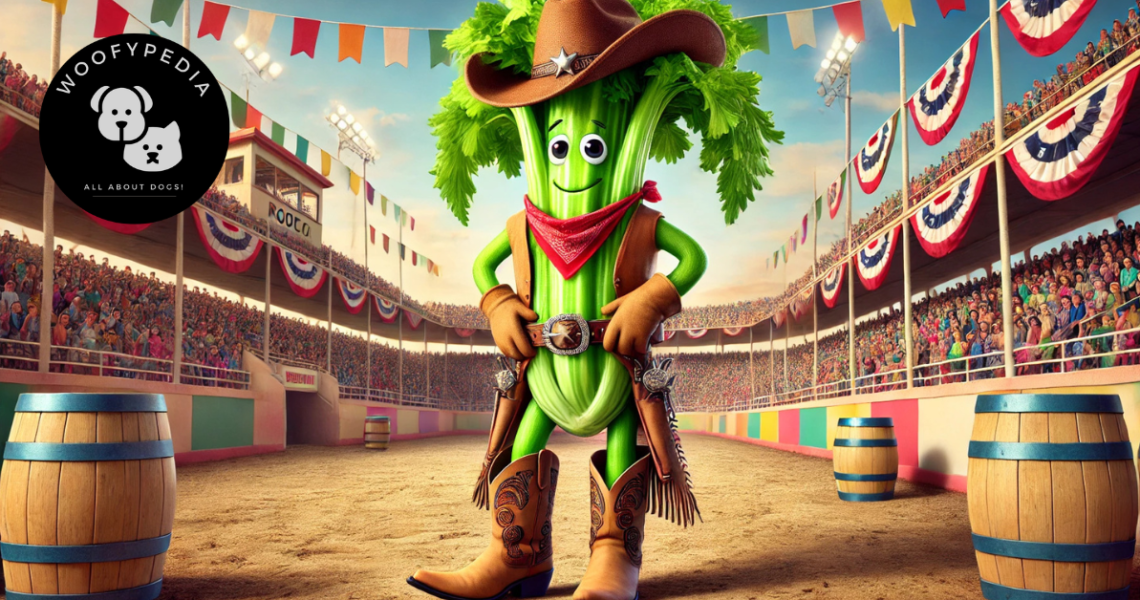Can dogs eat Celery?
Can dogs eat celery? : A Crunchy Snack or a Cause for Concern?
As dog owners, ensuring the safety of our furry friends’ diet is a top priority. With countless human foods potentially harmful to dogs, it’s natural to scrutinise what we offer them. Celery, celebrated as a low-calorie, nutrient-packed vegetable for humans, often raises questions: “Can dogs eat celery?” Knowing whether this crunchy snack is a good choice for your canine companion can help you make informed decisions about sharing your food responsibly.
Yes, dogs can eat celery, but only under specific conditions. When served plain, chopped into manageable pieces, and in moderation, celery is safe for dogs and may even provide some health benefits. However, there are important factors to consider, such as preparation, portion size, and your dog’s individual dietary needs. Let’s explore this crunchy vegetable in detail to ensure you’re making the best choice for your dog’s health.
Table of Contents
- Can dogs eat celery? : A Crunchy Snack or a Cause for Concern?

What Is Celery?
Celery is a low-calorie vegetable from the Apiaceae family, known for its long, crunchy stalks and distinct flavour. It is widely used in salads, soups, and snacks, valued for its nutritional content and hydrating properties. Celery is rich in vitamins, minerals, and fibre, making it a popular choice for health-conscious diets.
However, celery’s fibrous texture and natural sodium content require careful consideration when deciding, “Should dogs eat celery?” Unlike some human foods, celery is not inherently harmful, but its preparation and serving method are key.
Can Dogs Eat Celery?
The simple answer is yes, dogs can eat celery, but it’s important to serve it correctly. When prepared plain and cut into bite-sized pieces, celery can provide health benefits without posing a choking hazard or causing digestive upset.
For small dogs, celery should be chopped into very small pieces to avoid any risk of choking. For larger dogs, slightly larger pieces may be fine but should still be manageable to chew and swallow.
What Are the Benefits of Celery for Dogs?
Celery, when prepared correctly and offered in moderation, can provide several benefits to your dog. While not an essential part of a dog’s diet, it contains nutrients and compounds that may support overall health. Here are some potential benefits:
- Low in Calories
Celery is an excellent low-calorie snack, making it ideal for dogs that need to manage their weight. It’s a guilt-free treat for pet owners who want to reward their dogs without adding unnecessary calories. - Rich in Vitamins and Minerals
Celery contains several essential nutrients, including:
- Vitamin K: Supports healthy blood clotting and bone health.
- Vitamin C: Boosts the immune system and promotes overall vitality.
- Potassium: Helps maintain proper muscle and nerve function.
- Hydrating Properties
With its high water content, celery can help keep your dog hydrated, especially on hot days or after exercise. - Supports Fresh Breath
Chewing celery can act as a natural breath freshener for dogs, helping to reduce odour and promote oral hygiene. - Aids Digestion
Celery contains dietary fibre, which can support healthy digestion and regular bowel movements. However, too much fibre may cause digestive upset, so portion control is essential. - Contains Antioxidants
Celery is rich in antioxidants, which help combat free radicals and support overall cellular health.
Are There Risks to Feeding Celery to Dogs?
While celery is generally safe for dogs, there are some risks to consider:
- Choking Hazard
Celery’s fibrous texture can pose a choking risk, especially for small dogs. Always chop celery into bite-sized pieces and monitor your dog while they eat. - Digestive Upset
Too much celery can cause bloating, gas, or diarrhoea. Introduce celery gradually and observe your dog for any signs of discomfort. - Natural Sodium Content
While celery’s sodium content is low compared to processed foods, it’s still something to keep in mind, particularly for dogs with heart or kidney conditions. Serve celery in moderation to avoid any potential issues. - Pesticide Residue
Like many vegetables, celery may carry pesticide residue. Always wash celery thoroughly before serving it to your dog, or opt for organic produce when possible. - Individual Sensitivities
Some dogs may have sensitivities or allergies to celery. Symptoms can include itching, swelling, or digestive upset. If you notice any adverse reactions, discontinue feeding celery and consult your veterinarian.
How Much Celery Can Dogs Eat?
Portion control is key. A small dog might only need one or two small pieces, while larger breeds could enjoy a few more. Treats, including celery, should make up no more than 10% of your dog’s daily caloric intake.

Avoid the Dips Served with Celery!
While celery itself is a safe and healthy snack for dogs, the dips often paired with it are not. Popular choices like ranch dressing, hummus, or blue cheese dip can contain ingredients toxic to dogs, such as onions, garlic, or excessive salt. Even seemingly safe dips like peanut butter should be given with caution, as some brands include xylitol, an artificial sweetener that’s highly poisonous to dogs. To keep your furry friend safe, serve celery plain and free of any condiments or dips. This ensures they enjoy the crunchy treat without any hidden risks!
Can puppies eat Celery?
Yes, puppies can eat celery in moderation, but there are some important considerations to keep in mind. Celery can be a healthy, low-calorie snack for puppies, providing vitamins, minerals, and hydration. However, due to their smaller size and developing digestive systems, extra care is needed to ensure it’s safe for them.
Tips for Feeding Celery to Puppies:
- Cut into Small Pieces: Puppies are prone to choking, so make sure to chop celery into small, manageable pieces before offering it.
- Introduce Gradually: Start with a tiny amount to ensure your puppy doesn’t have any adverse reactions, such as digestive upset.
- Monitor for Allergies or Discomfort: Watch for signs of allergies or stomach trouble, like vomiting or diarrhoea.
- Limit Quantities: Celery should only be an occasional treat and not a staple in their diet, as puppies need nutrient-dense foods to support their growth.
As long as you follow these precautions, celery can be a safe and crunchy treat for your puppy to enjoy!
Fun Facts About Dogs and Celery
- Some dogs love the crunch of celery, making it an enjoyable treat for those with a taste for vegetables.
- Celery has been cultivated for thousands of years, valued for its flavour and medicinal properties.
- While celery is not a necessary part of a dog’s diet, it’s a healthy option when you want to share a snack.

Conclusion
So, can dogs eat celery? The answer is yes—with precautions. Always serve plain, washed, and chopped celery in moderation. Avoid feeding celery to dogs with specific dietary restrictions or those prone to choking. As always, consult your veterinarian if you’re unsure about adding new foods to your dog’s diet. Have you shared celery with your dog? Let us know your experience below!
Here’s a revised FAQ focusing on unique, complementary questions that may not overlap significantly with the main article:
FAQ: Dogs, Puppies, and Celery
- Can celery help with dog breath?
Yes, celery is often touted as a natural breath freshener for dogs. Its crunchy texture can help scrape away plaque and food debris, which may contribute to fresher breath. - Is celery a good snack for overweight dogs?
Absolutely. Celery is low in calories and fat, making it a healthy, guilt-free snack option for dogs on a weight management plan. Just ensure it doesn’t replace balanced meals. - Can dogs eat cooked celery?
Yes, dogs can eat cooked celery, and it may be easier for some dogs to digest. Avoid adding any seasonings, butter, or oils, as these can be harmful to dogs. - Does celery provide hydration for dogs?
Yes, celery has a high water content, which can help keep your dog hydrated, especially during hot weather or after exercise. - Can celery be fed to dogs with sensitive stomachs?
While celery is generally safe, dogs with sensitive stomachs may struggle with its fibrous nature. Start with a small amount and monitor your dog for any adverse reactions. - Can celery help with constipation in dogs?
Yes, the fibre in celery may aid in relieving mild constipation in dogs. However, excessive amounts can have the opposite effect and cause diarrhoea. - Should I avoid giving celery to certain dog breeds?
No specific breeds are inherently unable to eat celery. However, small breeds are more prone to choking, so always cut celery into small pieces and monitor them while eating. - What should I do if my dog accidentally eats a large amount of celery?
Monitor your dog for signs of digestive upset, such as vomiting or diarrhoea. If symptoms persist or your dog seems distressed, contact your veterinarian for advice.
